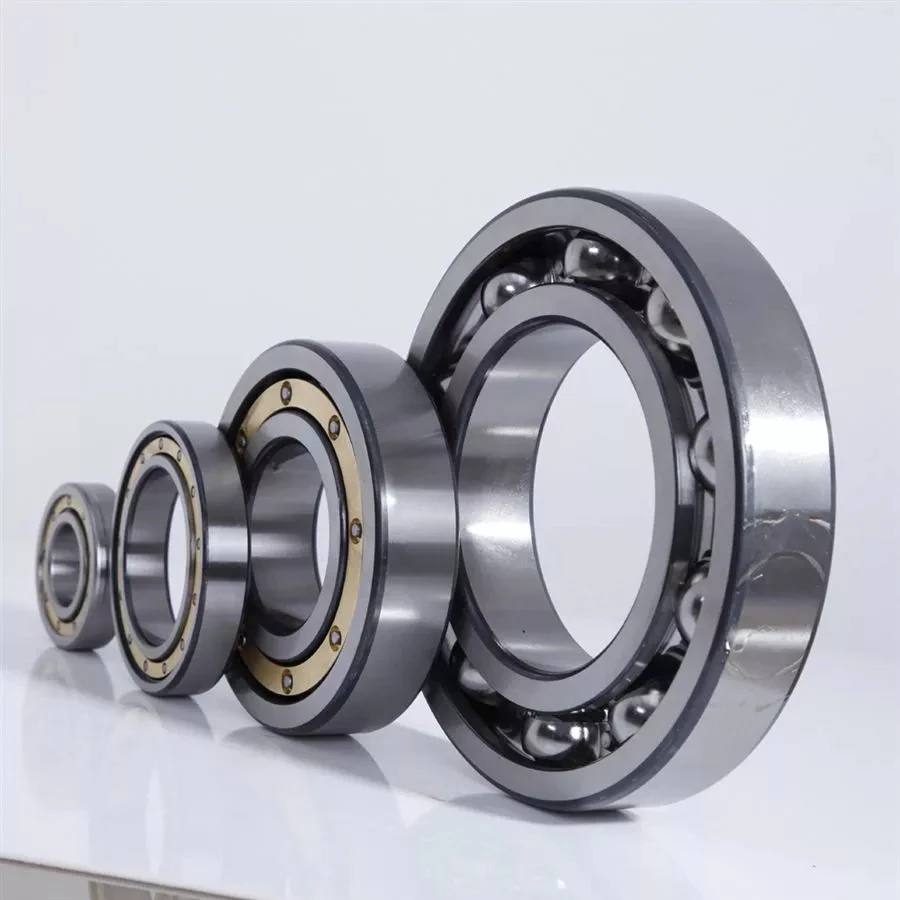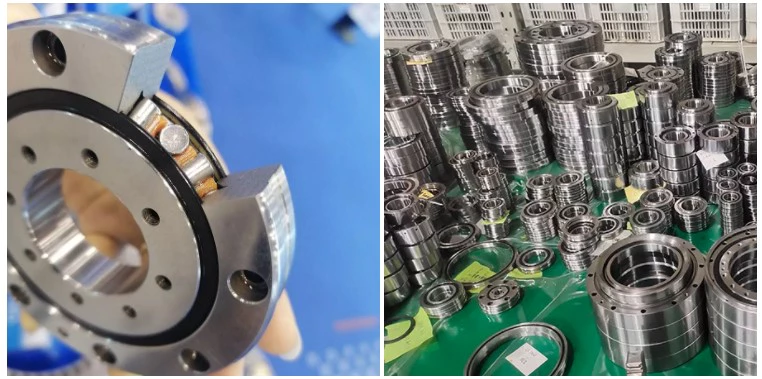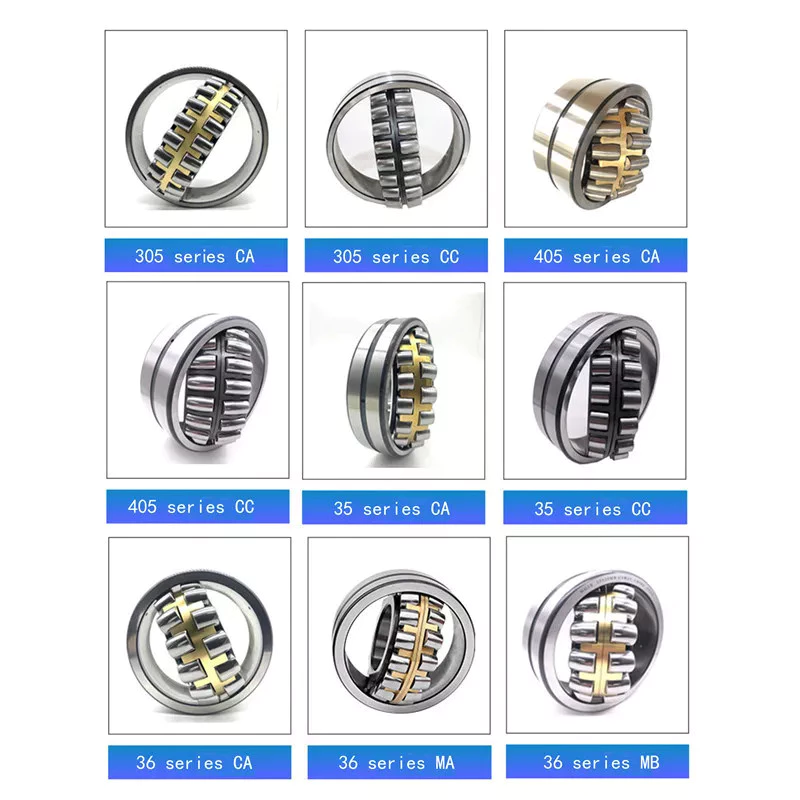Product Description
Customized Precision Aluminum Alloy CNC Machinery Machined Machining Parts for Motorcycle/Medical/Agricultural/Aerospace/Education
| Factory: | Rollyu Precision Machining Co., Ltd |
| Production Description | Customized Precision Aluminum Alloy CNC Machinery Machined Machining Parts for Motorcycle/Medical/Agricultural/Aerospace/Education |
| Processing | Machining, Turning, Milling, Grinding, Wire-EDM,Fabrication service etc. |
| Material for CNC Machining processing | 1) Aluminum - AL 6061-T6, 6063, 7075-T,5083,6063,6082,5052,2A12 etc. |
| 2) Stainless steel - SS 201,SS301 SS303,SS304,SS316L, SS416L,17-4(SUS630),440C, 430 etc. | |
| 3) Steel - 4140,4340,Q235, Q345B,20#,Cr12MoV,D2,A2,4140,4150,P20,S136,M2,O2, SKD11,CRS, etc. | |
| 4) Titanium - TA1,TA2/GR2, TA4/GR5, TC4, TC18 etc. | |
| 5) Brass - C36000 (HPb62), C37700 (HPb59), C26800 (H68), C22000(H90) etc. | |
| 6) Copper - bronze,Phosphor Bronze, Magnesium alloy, etc. | |
| 7) Plastic - Peek, Nylon, G-10, Acrylic,Anti-Static Acetal Tan (Tecaform SD) , PC,ABS, etc. | |
| 8) Food class ,Medical class- such as POM, Delrin, etc. | |
| 9) Aerospace class - PEI+30%GF,PEEK+30%GF,PC+30%GF,PU,PTFE,PE,PVC etc. | |
| 10) Rollyu Precision handles many other type of materials, please kindly contact us if your required material is not listed above. | |
| Finish | For Aluminum parts - Clear anodized, Color anodized, Hard anodized, Sandblasting, Chemical film, Brushing, Polishing, Painting, Silk screen printing,Etching, Laser marking, etc. |
| For Stainless steel parts - Polishing, Passivation,PVD, Sandblasting, Black oxide, Electrophoresis black, Painting, Silk screen printing,Etching, Laser marking, etc. | |
| For Steel parts - Polishing, Black oxide, Nickel /Zinc/Gold/ Chrome/Silver plating, Carburized, Powder coating,electrophoresis, QPQ(Quench-Polish-Quench), Heat treatment, Painting, Silk screen printing,Etching, Laser marking, etc. etc. |
|
| For Brass parts - Nickel /Zinc/Gold/ Chrome/Silver/Titanium plating, Electrophoresis black, Powder coating,Painting, Silk screen printing,Etching, Laser marking, etc. | |
| For Plastic parts - Plating (ABS), Brushing (Acylic),Painting, Silk screen printing,Etching, Laser marking, etc. | |
| Rollyu Precision handles many other type of finish, please kindly contact us if your required finish is not listed above. | |
| Tolerance | Minumum tolerance +/- 0.05mm (+/- 0.0005") |
| Surface roughness | Ra 0.1~3.2 |
| Drawing format | Step/Igs/PDF/DWG/DXF, etc. |
| Testing equipment | CMM (Coordinate Measuring Machine),Height gauge, Caliper, Hardness tester, Roughness tester, Projector machine, Pin/Angle/Block/Plug/Thickness/Thread/Radius gauge,etc. |
| MOQ | 1 piece |
| Lead time | 2 weeks after received order. |
| Certificate | ISO9001, ISO13485. |
| Inspection processing | IQC,IPQC, FQC, QA. |
| Capacity | CNC turning work range: φ0.5mm-φ650mm*600mm. |
| CNC milling work range: 880mm*1300mm*600mm. | |
| Application | Automation, Medical device, Consumer Electronics, Security, IoT, Energy, etc. |
Rollyu Precision Machining Co., Ltd located in HangZhou, China, is a mechanical manufacturer providing a wide range of custom specialty plastic injection molded parts, cnc machining parts, Sheet Metal Fabrication, Liquid Silicone Rubber Injection Parts, Aluminum Extrusion, Sub-assemblies ,along with advanced over molding capability.
Serving markets including Security systems, Fire systems, Marine ,Health care, Medical Devices, Personal Care, Networking, Internet of Things (IoT), Xihu (West Lake) Dis.n Machine Interaction (HMI) , Consumer Electronics, Telecommunications and Renewable Energy as well as many others with solutions for a variety of challenges they face in these high paced, ever-changing industries. Rollyu Precision provides mechanical components and sub-assemblies to many of the top companies worldwide.
With many years of mechanical parts manufacturing, we continue to expand our capabilities and are well positioned to offer concept-to-commercialization solutions. Rollyu Precision can provide over molding capabilities to streamline timelines and costs. If medical device engineering and design for manufacturing services are needed, our project teams are aligned to provide those services, including tool and fixture fabrication and rapid prototyping.
Examples Of Services And Capabilities Include:
- Engineering DFM Services
- CNC Swiss Machining, Milling, and Turning
- Over molding and Injection Molding
- Plastic Injection Molded Parts
- Liquid Silicone Rubber Injection Parts
- Aluminum Extrusion
- Sheet Metal Fabrication
- Sub-assemblies
For a more complete list, please send us inquiry.
Rollyu Precision has unrivalled links with the companies Medical device, Instrumentation, Security systems, IoT, HMI, Automation, Photonics, Energy, Marine and many others industries. We have mutually beneficial relationships with nearly 150 companies around the world, from the smallest company to the largest enterprise.
For our partners, we deliver world-class machining parts, plastic molded parts , silicone rubber parts, sheet metal fabrication, heat sink, and assembly components. We can manufacture from single parts to sub-assemblies to meet challenges and your goals.
Quick Response After-sales Service
Rollyu Precision after sales service is based on our detailed knowledge of our team, our machines and our accumulated experiences, thus enabling our technicians to rapidly identify and resolve any potential problems.
A periodic diagnosis minimizes the risk of unexpected events and increases productivity. Moreover, all basic components are checked 100% before shipment.
We look forward to your RFQ or a trial order firstly.
Thank you for your time for having a visist at our on-line shop.
Sincerely
Tina/Rollyu Precision
FAQ
Q1: Are you a trading company or a factory ?
A1: We are a manufacturer specialized in precision parts OEM, Machining parts, Plastic injection molding, Plastic parts, Silicone and rubber parts, Heat sink, sheet metal fabrication as well as Sub-assembly.
Q2: Do you accept to manufacture the customized products based on our design?
A2: Yes, we are a professional factory with an experienced engineering team, would like to provide the OEM service.
Q3: How can I get the quotation?
A3: We will offer you the quotation within 24 working hours after receiving your detailed information. In order to quote you faster and more accurate, please provide us the following information together with your inquiry:
1) CAD or 3D Drawings
2) Tolerance.
3) Material requirement
4) Surface treatment
5) Quantity (per order/per month/annual)
6) Any special demands or requirements, such as packing, labels, delivery,etc.
Q4: Will my drawings be safe after sending to you?
A4: Sure, we will keep them well and not release to others without your permission.
Q5: How long is the lead-time for a mold and plastic parts, machining parts, sheet metal fabrication?
A5: It all depends on the mold (parts) size and complexity.
Normally, the lead time is 18-20 days for molds, 15-20 days for plastic parts. If the molds are very simple and not big, we can work out within 15 days.
The lead time for machining parts is around 2-4 weeks.
For sheet metal fabrication the lead time is around 3-5 weeks.
Q6: I have no 3D drawing, how should I start the new project?
A6: You can supply us the sample or provide us the product sizes and let us know the detailed requirements, our engineers will help you to work out the 3D drawing.
Q7: If you make poor quality goods, will you refund our fund?
A7: As a matter of fact, we won't take a chance to do poor quality products. Meanwhile, we manufacture good-quality products until your satisfaction.
Q8: Is it possible to know how are my products going on without visiting your factory?
A8: We will offer a detailed production schedule and send weekly reports with digital pictures and videos which show the machining progress.
Types of Ball Bearings
There are many types of Ball Bearings available on the market, but which 1 is best for your application? Here, we will discuss the differences between Angular contact, Single-row, High-carbon steel, and Ceramic ball bearings. These types of bearings also feature races, or a groove in the center of each. These races are important in keeping the balls contained within the cylinder. They also provide a groove-baed pathway.
Ceramic
The ceramic ball used in ball bearings has many advantages. It is lightweight, operates at lower temperatures, has reduced skidding, and is resistant to electrolysis. The ball also exhibits longer fatigue life. All of these factors make the ceramic ball a good choice for many applications. But, how do you know if a ceramic ball bearing is right for your application? Read on to discover why ceramic ball bearings are a better choice than steel or stainless steel ones.
The ceramic balls are 40% more dense than steel. This means less centrifugal force is generated on the bearing, which suppresses heat generation. Because of this reduced friction, ceramic bearings are more efficient at transferring energy. Compared to steel bearings, ceramic balls have longer life spans. Nonetheless, these ceramic balls aren't as strong as steel. Therefore, it is important to understand the limitations of the ceramic ball bearing before buying one.
The ceramic materials used for ball bearings are resistant to micro-welding. Metals undergo this process when imperfections in the surfaces interact. Eventually, this results in a brittle ball that reduces the life of a bearing. Unlike metals, ceramic materials have a stable behavior at high temperatures and exhibit less thermal expansion. This means that they can be used for applications where lubrication isn't an option.
While steel balls can easily absorb contaminants and foreign particles, the ceramic ball is insensitive to this, and doesn't require lubrication. This means they're not susceptible to corrosion and other common problems. These are just a few reasons why ceramics are a better choice. This technology has a wide range of uses. It's easy to see why it is so popular. If you're looking for a new bearing for your application, be sure to contact an AST Applications Engineer. They can analyze your operating conditions and potential failure modes.
Angular contact
An Angular Contact Ball Bearing (also known as an angular-contact bearing) has an axial component that is generated when radial loads are applied. They are generally used in pairs, triplex sets, or quadruplex sets. These bearings are also available with Super Finished Raceways to reduce noise and improve lubricant distribution. Angular contact ball bearings have various design units, such as bore size, outer diameter, and outer ring width.
A single-row angular contact bearing has a radial contact angle that is equal to the angular distance between the 2 rings. Double-row angular bearings are designed for two-way thrust capability. These types of bearings can be purchased at Grainger and other online retailers. A typical angular contact bearing will last up to a million revolutions. They are often used in industrial angular contact bearings.
Single-row angular contact ball bearings feature a set contact angle. These bearings can support radial and axial loads, but they can't withstand high speeds. Single-row angular contact ball bearings may also have 1 or 2 shoulders relieved. Thrust load is a pressure placed on the bearing when it is installed in an assembly, and it is used to create an angle between the races.
Angular contact ball bearings come in single and double-row configurations. They differ in the axial load they can carry and the type of lubrication they use. Angular contact ball bearings are ideal for high-speed applications and can accommodate both radial and axial loads. The type of contact and lubrication used in angular-contact ball bearings depends on the intended use for the bearing.
High-carbon steel
Carbon steel is a low-alloy and high-carbon steel used in bearings. This material provides superior strength and fatigue properties for ball and roller bearings. Its mechanical properties are ideal for applications where the temperature is less than 400 degrees Fahrenheit. High-carbon steel is also used to make bearing components for chrome steel bearings. These types of steels are softer than chrome steel but provide superior durability in applications where the material is exposed to severe conditions.
Hardened carbon steel balls with an AISI 1015 hardness index are used in a variety of automotive, commercial, and semi-precision applications. In addition to automotive applications, they are also used in slides, trolleys, and conveyors. AISI 1015 carbon steel balls are used in bearings. They can be purchased in a variety of weights and diameters. Carbon steel balls can also be purchased in nickel-plated or uncoated varieties for decorative purposes.
In order to determine whether a ball bearing is made of high-carbon steel, the material must be tested for its hardness. An ordinary pocket magnet will work well, but an ordinary rare earth magnet isn't powerful enough to measure the hardness. If it attracts the magnet strongly, the metal is steel, while a weak magnet indicates a non-ferrous material. A hardness test requires a special microhardness test.
A lower-carbon steel is another option. Some miniature bearing manufacturers use a material with less carbon than AISI 440C. This material is also known as KS440 or X65Cr13. After being heat-treated, it develops smaller carbides, resulting in superior low-noise characteristics and the same corrosion-resistance as 440C. These materials are a less expensive alternative than chrome steel, but they are often less durable than chrome alloy steel.
Single-row
Single-row angular contact ball bearings accommodate axial loads in 1 direction. These are normally adjusted against a second bearing. Unlike other ball bearings, they are non-separable and contain an upper and lower shoulder. Single-row ball bearings are made of Chromium Steel (GCr15) which is heat-treated to achieve high uniform hardness and excellent wear resistance. They are the most commonly used type of bearings in the world.
Because of the angular contact between the radial plane and the raceway, single-row ball bearings transmit radial forces from raceway to raceway. A higher a, the greater the axial load carrying capacity of the bearing. Single-row angular contact ball bearings are ideal for high axial loads. However, they have limited preload capabilities and must be installed in pairs. Hence, they are best used for applications where axial forces must be distributed.
Single-row ball bearings can be pre-lubricated and have steel shields. They are also available with rubber seals or snap rings on the outside edge. They are available with various retainers, including pressed steel cages, plastic shields, and rubber seals. A tapered bore is also available upon request. They are ideal for applications where space is limited. The 6200 series of bearings are especially well suited for electrical motors, dental hand tools, and optical encoders.
Single-row angular contact ball bearings are widely used for axial loads. The outer and inner rings have slightly larger radii than the balls. These bearings can accommodate high speeds and low torque. They can also be supplied with different grease levels. If grease is needed, you can choose a lubricant that has different characteristics depending on the application. They are easy to install and maintain. However, they are not recommended for adjacent mounting.
Plastic
A plastic ball bearing is a highly versatile component that can be mounted in a variety of components, including wheels, pulleys and housings. The outer ring of a plastic bearing is usually the pulley profile. The inner ring can be made of a shaft or polymer. The integrated design of a plastic ball bearing helps to reduce assembly time and cost. Here are some of the benefits of this type of bearing:
First and foremost, plastic balls are lighter than metal balls. They also have less magnetic properties than steel balls, making them the best option for applications requiring low weight and noise. Glass balls are also lighter than stainless steel balls, making them the ideal metal-free choice. They are also very corrosion-resistant, which makes them a great choice for some applications. In addition to being lightweight, polymer ball bearings are also quiet. And because of their low weight, plastic ball bearings are ideal for applications that require fast speed.
Another advantage of plastic bearings is their ability to withstand high temperatures. This material is also abrasion and corrosion-resistant. It meets FDA and USDA acceptance requirements. Aside from its abrasion-resistant and corrosion-resistant properties, these plastics do not transfer heat. Aside from being extremely durable and flexible, most plastics are also self-lubricating. Common plastics include phenolics, acetals, nylon, and ultra high molecular weight polyethylene. Nonetheless, plastics have limitations, and these materials may be damaged by extreme temperatures or cold flow under heavy loads.
Other advantages of plastic ball bearings include their low density, high hardness and low friction coefficient, and ability to withstand heat and corrosion. Ceramics are also lightweight, non-conductive, and have superior resistance to friction. These products can withstand temperatures up to 1,800 degrees Fahrenheit. If you're in the market for a plastic ball bearing, it's important to choose the right type of material. And if you're looking for a high-quality bearing, look no further.

